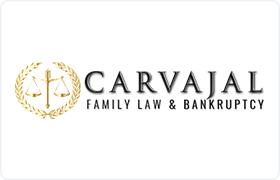River Edge Divorce & Family Law Lawyer, New Jersey, page 5
Sponsored Law Firm
-
 x
x

Click For More Info:
-
Carvajal Family Law & Bankruptcy
2035 John F. Kennedy Blvd North Bergen, NJ 07047» view mapDivorce & Family Law Fighting For Your Families Best Interest
It is our mission to deliver the highest possible quality legal services to our clients. We do this professionally, ethically, effectively, and affordably.
800-811-9560
Toni Ann Russo
Divorce & Family Law, Child Custody, Child Support, Child Custody
Status: In Good Standing
Terrence J. Corriston
Land Use & Zoning, Government Agencies, Estate Planning, Family Law
Status: In Good Standing Licensed: 38 Years
Kevin C. Corriston
Litigation, Estate Planning, Family Law, Criminal
Status: In Good Standing Licensed: 36 Years
David S. Hartstein
Construction, Wills & Probate, Family Law, Banking & Finance
Status: In Good Standing Licensed: 55 Years
Maryana Kanda
Mediation, Arbitration, Family Law, Divorce & Family Law
FREE CONSULTATION
CONTACTMichael A Manna
Alimony & Spousal Support, Criminal, Business Organization, Animal Bite
Status: In Good Standing Licensed: 51 Years
Russell P Trocano
International, Workers' Compensation, Family Law, Personal Injury
Status: In Good Standing Licensed: 37 Years
Jennifer Clare Lenihan
Divorce & Family Law, Customs, Child Custody, Children's Rights
Status: In Good Standing
 Lazaro Carvajal North Bergen, NJ
Lazaro Carvajal North Bergen, NJ Practice AreasExpertise
Practice AreasExpertise
